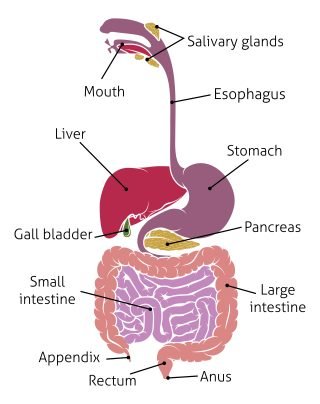10 signs of an unhealthy gut & what you can do about it
- Lifestyle Advice
Do you know the 10 signs of an unhealthy gut? Your digestive system provides the secrets to optimal health, and any disturbances to the gut can be reflected in physical and emotional signs.
Your gut is an intricate command center for digestion, immunity, and emotional well-being. It is the epicenter controlling how you feel physically and emotionally.
This blog outlines what your body tells you about gut health, possible causes, and research-based recommendations to restore digestive health. By monitoring the health of your gut, you can keep tabs on your overall health and well-being.
What is the gut?
The digestive system, comprising a complex network of organs like the mouth, esophagus, stomach, and intestines, is known as the “gut.” This system significantly impacts digestion and nutrient absorption.
The gut microbiota is a complex community of trillions of microorganisms living in the digestive system. These microorganisms play crucial roles in our overall health.
An imbalance among these microbial populations can develop within the 10 signs of an unhealthy gut and may contribute to various diseases (1,2).

10 signs of an unhealthy gut
1. Bloating
Bloating happens due to a buildup of gas (3). This can lead to uncomfortable fullness and abdominal tension after meals.
Bloating may be caused by:
- Stress and anxiety.
- Food intolerances.
- Excessive air intake from chewing gum, fizzy drinks or drinking from a straw.
- Gas-producing foods, such as broccoli, sprouts, cabbage or onions.
- Certain medications.
- A lack of exercise promotes digestive movement.
- Hormonal fluctuations (3).
For example, fluctuations in hormone levels can affect gut function, leading to symptoms like bloating and indigestion. You may experience perimenopause bloating or menopause bloating.
Try probiotics for IBS, or check out Instant bloating relief for ideas on how you can improve your bloating… You could also consider the low FODMAP diet, guided by a trained professional.
2. Diarrhea
Diarrhea is a condition characterized by the frequent passing of loose or watery stools. For some people, this can impact on their daily lifestyle.
Potential causes of diarrhea:
- Bacterial or viral Infections.
- Certain medications, including some antibiotics.
- Food intolerances.
- Medical conditions, such as IBS, Crohn’s disease and Ulcerative colitis.
- Imbalances to the gut microbiota (4).
Many people with IBS suffer from diarrhea (IBS-D). Find out more about what is IBS-D and how you can manage it.
Insufficient fluid intake leading to dehydration can impair the mucosal lining in the intestines, affecting digestion and nutrient absorption and loose stools.
It is essential to stay hydrated and replace lost fluids. Aim for 35ml/kg/day to meet your fluid requirements (5).
3. Constipation
Infrequent bowel movements and a feeling of incomplete evacuation usually describe constipation.
Although regularity will vary from person to person, a regular bowel movement may be considered at least three bowel movements per week (6).
This may signal the absence of beneficial bacteria for breaking down food and aiding digestive movement (6).
Please find out more about what is constipation and how can you treat it.
A diet high in fiber from whole grains, wholemeal, fruits, nuts, seeds, beans, legumes, and vegetables is recommended to aid digestive movement.
Find out how to get 30g of fibre per day.

4. Bad Breath (halitosis)
Halitosis often points to an imbalance in the gut microbiome or digestive issues in the upper GI tract.
Bacteria in the mouth, especially on the tongue and below the gumline, usually cause the unpleasant smell associated with halitosis.
These bacteria break down food particles and proteins, creating volatile sulfur compounds that give off a foul odor.
Top tip: People will cover up halitosis by choosing sugar-free gums and mints. Be aware the sweeteners inside these gums and mints, including sorbitol, mannitol, and xylitol, are high in polyols (the P in FODMAP), which may exacerbate IBS symptoms (7).
Find out more about which sweeteners are low FODMAP? Dietitian advice for IBS.
5. Sugar Cravings (from a diet high in sugar)
If you’re craving sugar and consuming a diet high in sugar or a lot of processed foods, this will negatively influence the gut.
This impact may decrease the number of good bacteria in your gut, used for essential physiological functions. (8).
A diet high in sugar (not actual sugar cravings) can lead to poor gut health.
Limit foods with high sugar, such as chocolate, biscuits, sweets, sugary drinks, and some cereals/cereal bars. Swap to naturally sweet foods such as a portion of fruit (8, 9).
6. Skin Issues
An imbalanced or inflamed gut can disrupt this gut-skin barrier, leading to various skin issues.
This suggests that the health of your gastrointestinal system can significantly impact your skin’s condition and vice versa.
This relationship is mediated through various mechanisms such as inflammation, hormone secretion, and microbial balance (10).
Omega-3 fatty acids are recommended to promote a healthy gut clearer skin and may provide other cardiovascular benefits, too (8).
7. Fatigue
Poor sleep and chronic tiredness often reveal an unhealthy gut’s disruption of serotonin production.
Serotonin is a neurotransmitter that plays key roles in regulating mood, sleep, and appetite (11).
Poor sleep patterns and a lack of restorative sleep can negatively affect gut health. Keeping active and exercising can improve digestive health and boost energy levels, so choose something you enjoy (12).
For more information on the types of beneficial exercises – read does exercise improve gut health.

8. Mood Swings and brain fog
Poor mental health is included in the 10 signs of an unhealthy gut. Emotional and mental distress can indicate disruption of signals from the digestive system to the brain via the gut-brain axis.
High stress levels can harm gut flora and overall digestive health. Click here for the link between stress, anxiety, depression and IBS.
Try to practice stress-reduction techniques, such as deep breathing, yoga, psychological therapies, or gut-directed hypnotherapy.
9. Unintended Weight Changes
Unplanned weight gain or loss may indicate nutrient malabsorption or imbalances in gut bacteria.
These imbalances can affect blood sugar control and the response to hunger-inducing hormones, impacting your weight.
Check out this blog on losing weight and IBS or how to increase weight with IBS.
10. Frequent Illness
You may experience colds or infections/viruses, which are difficult to fight off, or feel you get these illnesses more than other people. This points to an imbalance in gut flora that can affect the immune system.
A diet rich in fruit and vegetables may help. These foods can provide vitamins, minerals and antioxidants to support the immune system to prevent and combat illnesses.
Disclaimer
These 10 signs of an unhealthy gut are not exclusive symptoms of poor gut health. Other conditions, such as depression or autoimmune conditions, can also cause similar symptoms (13).
It is, therefore best to speak with your doctor to gain clarity on the cause.
Summary
The key to understanding your gut health begins with understanding the 10 signs of an unhealthy gut and their possible causes.
These range from digestive issues like bloating, diarrhea, and constipation to systemic problems like skin issues, fatigue, and frequent illness; these signs are red flags you shouldn’t ignore.
A poor diet and lifestyle, stress, lack of exercise, and certain medications may exacerbate these symptoms by disrupting the intricate functioning of the digestive system and the gut microbiota.
You can follow dietary recommendations to enhance your gut health. Increasing dietary fiber intake, taking probiotics, limiting refined sugars and processed foods, and staying hydrated may all help.
Holistically, increasing your physical activity levels, getting a good night’s sleep, and finding stress-reducing methods can optimize gut health and support your diversity for a healthier, balanced gut.
Add foods into your diet rather than restrict foods. These additions outlined in this blog will feed your gut bacteria and help you avoid the 10 signs of an unhealthy gut!